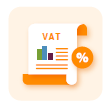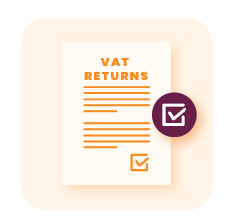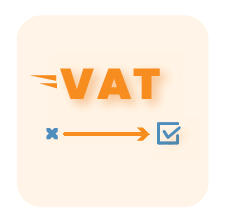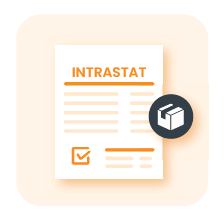VAT Returns & Recovery in Latvia
In Latvia, the sale of goods and provision of services are generally subject to Value Added Tax (VAT), unless specific exclusions apply. Even foreign businesses that do not have a physical presence in Latvia but engage in activities within the country can be liable for Latvian VAT. In such cases, these businesses are required to register for VAT, collect VAT from their customers, and file VAT returns accordingly.
Read more about VAT recovery and VAT returns in Latvia in our comprehensive guide below.
Selling in Latvia?
VAT Recovery in Latvia
In Latvia, the value of a transaction for a supply is subject to taxation. However, the overall amount of Value Added Tax (VAT) owed can be reduced, and in some cases, even reduced to zero, by taking a credit for VAT paid on specific purchases, commonly known as “input VAT.”
The rules and guidelines for deducting input tax from output tax are outlined in Chapter XI of the VAT Law. To qualify for input tax deduction, the recipient of the supply or the person acquiring or importing the goods must be liable for VAT. The supplies must have been incurred for the recipient’s business purposes, and the credit for input VAT must be claimed within the applicable period specified for claiming such credits.
The specific provisions for deducting input tax from output tax can be found in Chapter XI of the VAT Law.
For input tax to be available as a credit, the following basic requirements must be met:
- The receiver of the supply, or the person who acquires or imports the products, must be a taxable person.
- The supplies must have been made for the recipient’s business.
- The claimant must have sufficient documented proof of the input tax incurred (i.e., valid VAT invoices or receipts must be preserved).
- The credit must be claimed during the time in which the entitlement to claim it applies.
- The input tax must be due to either taxable supplies or supplies manufactured outside Latvia that would have been taxable in Latvia.
Suppose the property manager – an intermediary – prepares an invoice and pays the service provider, including VAT. In that case, a VAT deduction is possible on the supply of water, heating, electricity, gas, and sewage or domestic waste collection services. Goods or services procured for non-business use.
Download the Latvian VAT Guide
Foreign companies based outside of the EU
Businesses that are registered for Value Added Tax (VAT) in Latvia but are located outside of the European Union (EU) can obtain a refund by following the same process as Latvian taxpayers.
Taxpayers from outside the EU who do not engage in commercial activities within Latvia have the right to request a VAT refund in Latvia based on the principle of reciprocity. This refund applies to VAT charged on goods and services acquired within Latvia, as well as on imports of goods for conducting taxable transactions outside the EU. However, refunds are only granted under the reciprocity principle if individuals residing in Latvia are eligible to receive VAT or similar refunds from the corresponding third country or territory under identical circumstances.
Refunds are currently given to taxpayers who are registered in the following member states:
- Norway
- Switzerland
- Iceland
- Monaco
Reimbursement is possible for products with a minimum VAT-exclusive value of EUR 35.
Deduction and Recovery of Input Tax
If an intermediary, such as a property manager, issues an invoice and transfers payment to a service provider for the supply of water, heating, electricity, gas, sewage, or domestic waste removal services, a VAT deduction is allowed. This deduction includes the VAT charged on the invoice.
VAT Overpayment
Within 30 days of receiving the VAT return for the appropriate tax period, the State Revenue Service may carry over any overpaid VAT to the following tax period.
After all other tax duties of the taxpayer have been satisfied, the unpaid VAT may be transferred to the following tax period.
If an unpaid VAT amount remains after other tax obligations have been satisfied, the VAT sum may be carried over to the next tax period.
Suppose an amount of overpaid VAT remains at the end of the tax year. In that case, it is refunded to the taxpayer’s bank account within 10 days after the State Revenue Service receives the VAT return for the last month of the tax year and authorizes the overpaid VAT amount.
Last Updated: 13/10/2023
Disclaimer
The information provided by Global VAT Compliance B.V. on this webpage is intended for general informational purposes only. Global VAT Compliance B.V. is not responsible for the accuracy of the information on these pages, and cannot be held liable for claims or losses deriving from the use of this information. If you wish to receive VAT related information please contact our experts at support@gvc.tax








